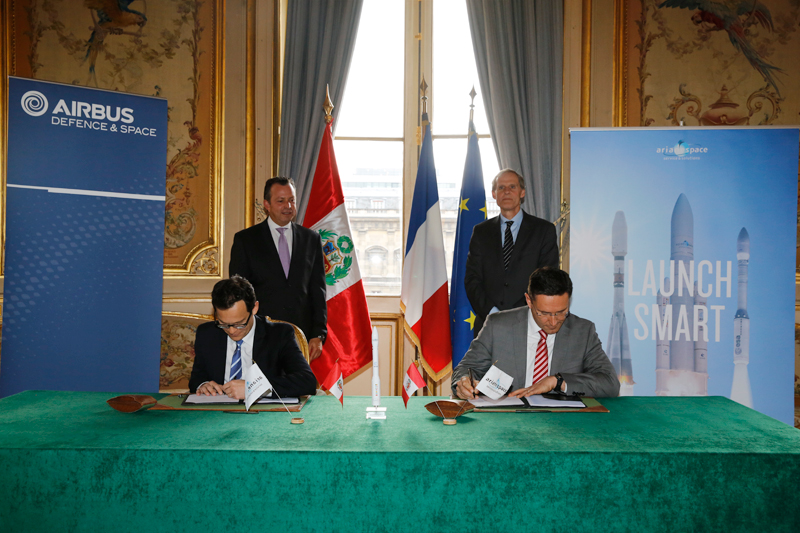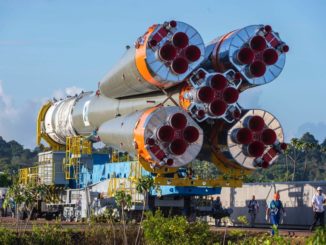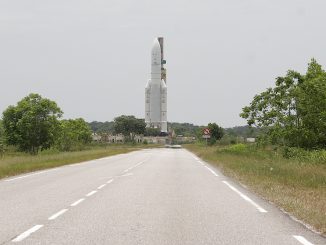
Arianespace will pair a Peruvian military reconnaissance satellite with a package of four commercial Skybox Earth imaging spacecraft on a Vega rocket launch in 2016, officials said this week.
The PeruSat 1 satellite, built by Airbus Defense and Space, will take off on a Vega rocket from the Guiana Space Center in South America. Four satellites owned by California-based Skybox Imaging, a subsidiary of Google, will launch on the same rocket under a separate agreement.
“Airbus Defense and Space has entrusted us with a key mission, to launch this landmark satellite for its customer, Peru, using the Vega launcher, for which our partner ELV is the prime contractor,” said Stephane Israel, Arianespace’s chairman and CEO. “With this third launch contract since the start of the year, Vega consolidates its leadership in the export market, for both governmental and commercial missions. We are extremely proud and honored to be able to serve the Peruvian government through this upcoming launch.”
With a launch mass of 450 kilograms, or 992 pounds, Airbus is building the PeruSat 1 satellite for the Peruvian Defense Ministry. The contract calls for Airbus to hand over control of the satellite to Peruvian operators after it is in orbit, giving the European space contractor responsibility for selecting a launcher for PeruSat 1.
PeruSat 1 will collect very high-resolution imagery around the world for the Peruvian military and intelligence services. Airbus has delivered similar small satellites to the governments of other developing countries, including Vietnam, Thailand, Chile, Kazakhstan, Taiwan and Algeria.
The contract win gives the Vega rocket another payload as Arianespace tries to attract customers to support a launch rate of at least three Vega flights per year, a milestone expected to be achieved for the first time this year.
Before 2015, the solid-fueled launcher flew once per year since the Vega’s inaugural mission in February 2012. Four Vega rockets have launched to date, and the next liftoff set for June 11 with Europe’s Sentinel 2A environmental satellite.
Follow Stephen Clark on Twitter: @StephenClark1.



